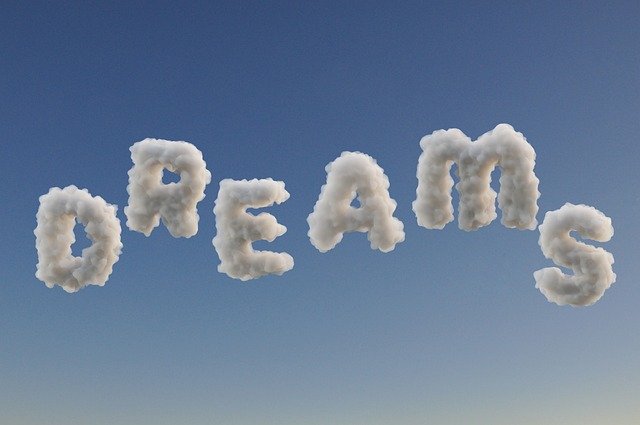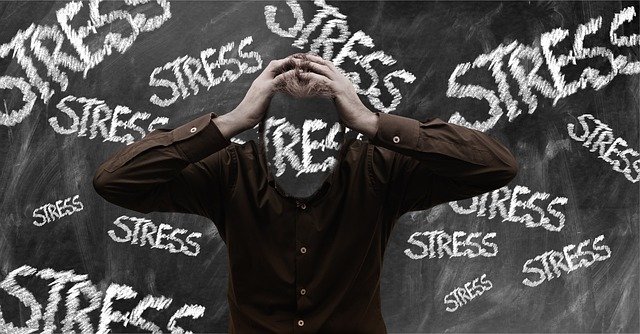Sleep - It’s Underrated but Essential!
It sounds so simple – You go about your day and then when the evening hits, you wind down and get ready for bed and fall asleep until your alarm goes off in the morning. If you are one of the many that suffer from insomnia, whether it is a struggle to fall asleep or to stay asleep, I may have just described one of your dreams.
How can something that seems so basic and was so simple when we were babies, be so hard to achieve for many people as they get older? Wouldn’t it be amazing to be able to say every morning “I slept like a baby last night” or “I slept through the night”?
Sleep is so vital for our bodies. It is restorative, aids in cellular repair and healing, and gives us the energy we need for our day. Teens and adults (13+ year) should aim to get around 8-10 hours of shut-eye every night. According to the American Academy of Sleep Medicine (1), infants to 12 months need 12-16 hours, toddlers require 11-14 hours, young children (3-5 years) need 10-13 hours, and, older children (6-12 years) require 9-12 hours.
The Effects Of Insomnia On our Mental and Physical Health
When we do not get enough sleep every night, the effects go far beyond just feeling sleepy and unrefreshed in the morning. A lack of sleep in children, teenagers, and adults can lead to:
Weight gain or difficulty losing weight
A lack of mental focus and attention
Blood sugar imbalances (and you may notice you feeling hungry more often throughout the day)
Low libido
Mood disorders such as anxiety and depression
Moodiness and being irritable
Low energy and a lack of productivity throughout the day.
Children may have decreased performance in school resulting in poor grades.
More inflammation and pain
Why Can One Have Insomnia?
Shift work or working night shifts which disrupts your circadian rhythm and the beautiful diurnal cortisol curve we would like to have (high cortisol in the morning and low cortisol at night)
Frequent travel which can also disrupt circadian rhythms, particularly travelling to the east with time zone shifts involving 8+ hours can create a more pronounced disruption to our circadian rhythm (2). Melatonin could be a possible option for resynchronization once you reach your destination but speaking with your healthcare professional to know the dose for you is best.
A high stress lifestyle that contributes to chronically elevated cortisol levels
Thyroid dysfunction such as hyperthyroidism
Perimenopause and menopause
Respiratory disorders like sleep apnea or asthma
Anxiety and depression, worry, acute stressful situations
Women may experience insomnia at various points of their menstrual cycles such as before their periods when estrogen and progesterone drop or perhaps around ovulation with the fall in estrogen.
Those with histamine intolerance
Digestive troubles
Chronic pain
The Good News… There Can Be Natural Sleep Solutions
There are natural options to help you get a better sleep if you don’t want to have to rely on sleep medications. Naturopathic doctors can help you figure out and treat the root cause of your sleep difficulties whether it is balancing your estrogen, progesterone or testosterone; Regulating your cortisol rhythm; optimizing your thyroid function; Reducing inflammation; Or fixing your digestive health.
While you are working on the deeper root cause(s), there are a variety of herbs and supplements such as L-theanine, melatonin, magnesium, passionflower and other herbs that can help you get some Zzzz but the doses will vary for each individual and that is why it is highly advisable to work with a regulated healthcare professional like a naturopathic doctor to select the best option(s) for you. Acupuncture can be another great treatment to help with sleep. Naturopathic doctors can also check interactions between herbs/supplements and any medications you are taking as many herbs in this category can interact with medications, especially antidepressants and other anti-anxiety medications.
Need to get started today on trying to get a good night’s sleep while you wait for an appointment with a naturopathic doctor? Here are some simple lifestyle recommendations:
Decrease or minimize your screen time before bed. This means minimizing computer, cell phone, and TV use for both children and adults at least 2 hours before bed. The blue light radiated from the screens increases cortisol and disrupts your melatonin production which is needed to help maintain sleep.
Implement blue light filters on electronic devices – These can be set to turn on when it gets dark outside and turn off with daylight in the morning. Turning them on eliminates the blue light and emits an amber light. A study done using Amber-tinted lenses showed that amber improved sleep while blue-wavelength light suppressed melatonin (3).
Minimize caffeine, alcohol, and nicotine. Caffeine and nicotine are stimulants and can keep your body awake and alert longer. If you are a slow caffeine metabolizer, have your last caffeinated beverage early in the afternoon. Alcohol is a depressant and may make you feel tired but it makes you wake up earlier and have a disrupted sleep partly due to blood sugar and insulin dysregulation.
Exercise – It is important but don’t exercise intensely 1-2 hours before bed as it can release cortisol and increase your energy making it hard to wind down before bedtime. Light exercises like yoga or light weights can be good in the evenings.
Eat your last big meal at least 3 hours before bed time to allow for the food to digest prior to sleeping.
Minimize stress through mindfulness, meditation, yoga, dance, a warm bath, reading a book, a heartfelt talk with your significant other or anything else that helps you de-stress and lower your cortisol levels in the evening.
Are you looking for something more? Want to ensure there are no underlying causes to your insomnia? Book a naturopathic consultation with me to get your individualized sleep success plan.
References:
(1) Paruthi S, Brooks LJ, D’Ambrosio C, Hall WA, Kotagal S, Lloyd RM, Malow BA, Maski K, Nichols C, Quan SF, Rosen CL, Troester MM, Wise MS. Recommended amount of sleep for pediatric populations: a consensus statement of the American Academy of Sleep Medicine. J Clin Sleep Med 2016;12(6):785–786.
(2) Rose DM, Jung D, Parera D, Konietzko J. Zeitverschiebung und Jet-Lag nach Langstreckenflügen [Time zone shifts and jet lag after long-distance flights]. Z Arztl Fortbild Qualitatssich. 1999 Oct;93(7):485-90. German. PMID: 10568249.
(3) Shechter A, Kim EW, St-Onge MP, Westwood AJ. Blocking nocturnal blue light for insomnia: A randomized controlled trial. J Psychiatr Res. 2018 Jan;96:196-202. doi: 10.1016/j.jpsychires.2017.10.015. Epub 2017 Oct 21. PMID: 29101797; PMCID: PMC5703049.





